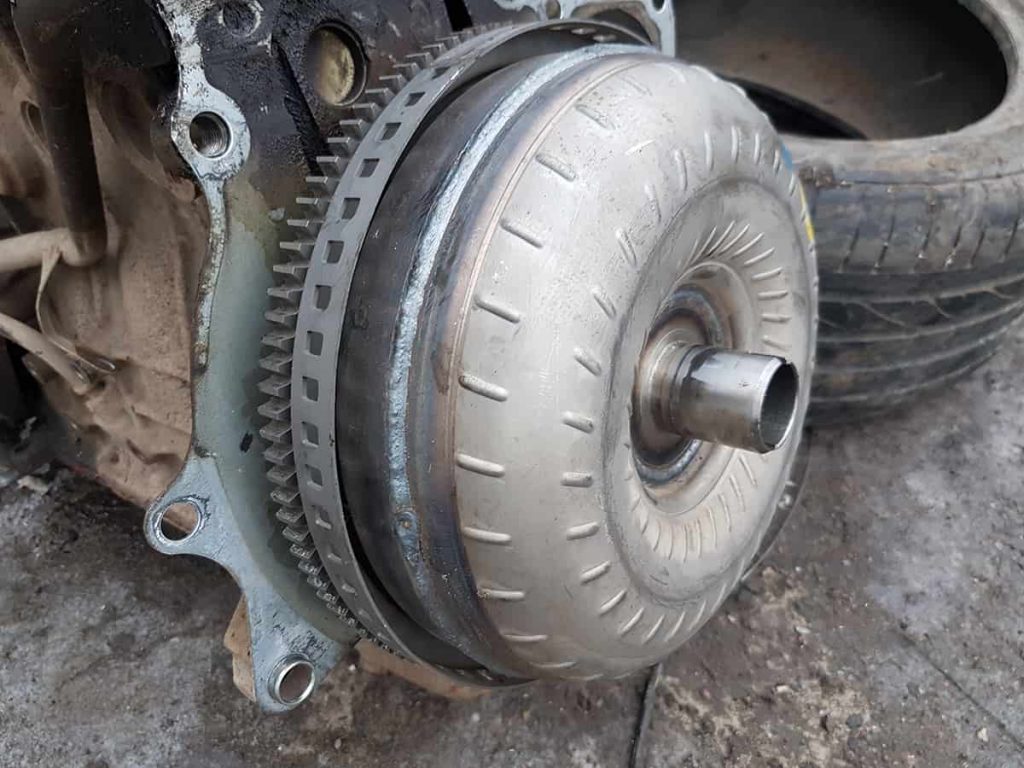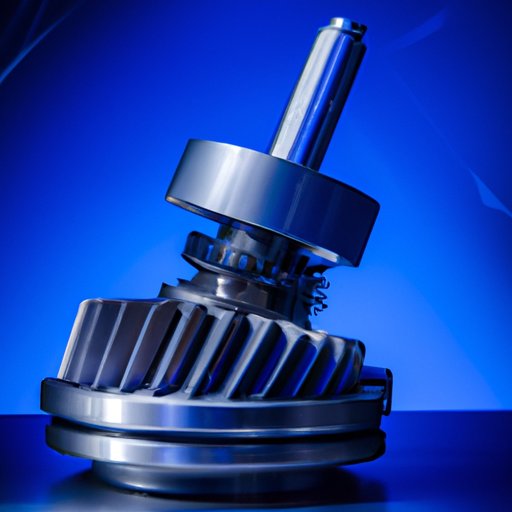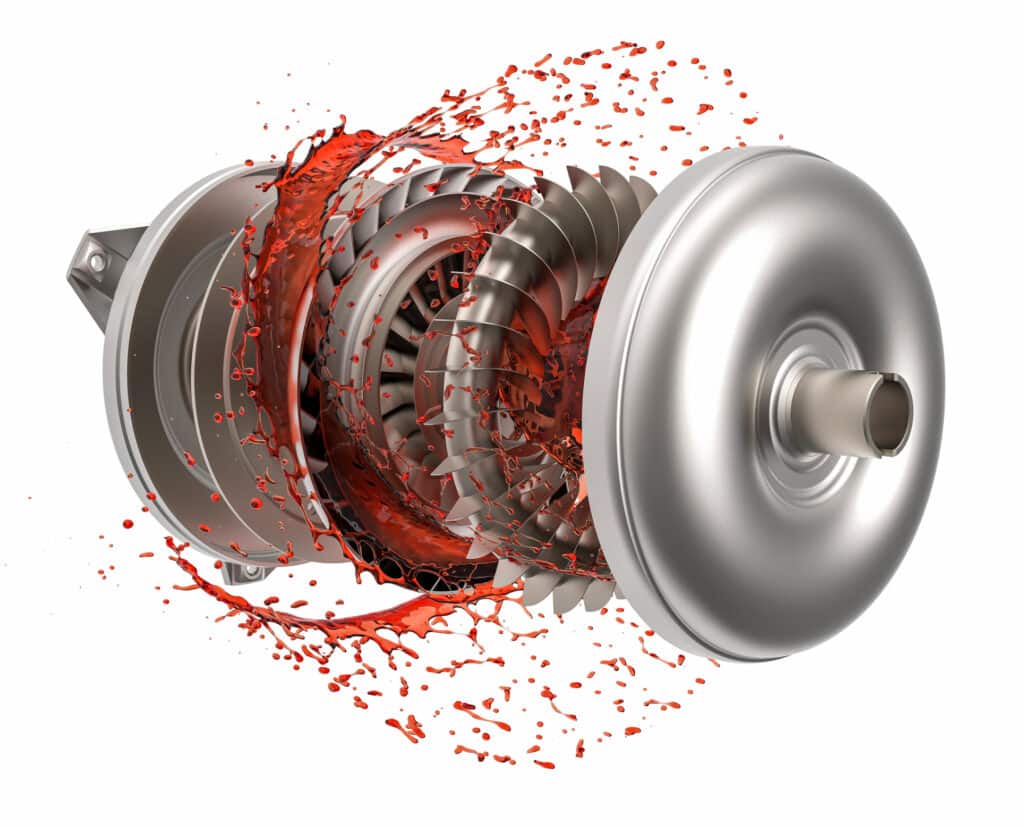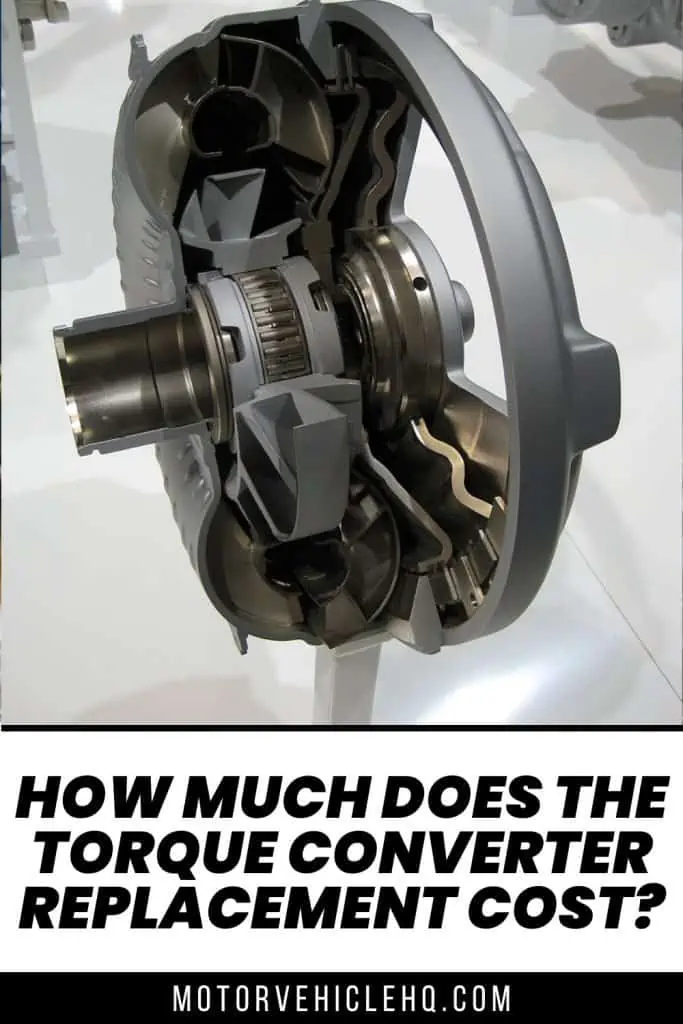Matchless Info About Why Is A Torque Converter Needed

What Is A Torque Converter? Location And How It Works Upgraded Vehicle
Understanding the Torque Converter
1. What exactly is a torque converter, anyway?
Let's be honest, the name "torque converter" sounds like something out of a science fiction movie. But in reality, it's a vital component tucked away inside your automatic transmission. Think of it as a hydraulic bridge, connecting your engine to the gearbox. Its primary job? To smoothly transfer power from the engine to the wheels without you having to stomp on a clutch pedal every five seconds. But theres so much more going on inside that metal casing.
At its heart, the torque converter is all about fluid dynamics. Inside, you'll find a bunch of fins swirling around in transmission fluid. As the engine spins, it drives the impeller, which throws the fluid against the turbine. The turbine, in turn, spins the transmission's input shaft, sending power to the wheels. This fluid coupling allows the engine to keep running even when the wheels are stopped, like when you're idling at a red light. It's a pretty ingenious piece of engineering when you really stop to think about it.
But it's not just about transferring power. The torque converter also multiplies torque, especially at lower engine speeds. Imagine trying to push a heavy box. At first, it takes a lot of effort to get it moving, right? The torque converter acts like that extra push, giving you the oomph you need to get your car moving from a standstill, or when climbing a steep hill. This is particularly useful for larger vehicles or when towing, where that extra torque is truly appreciated.
Essentially, its the unsung hero ensuring smooth starts, effortless acceleration, and preventing your engine from stalling every time you breathe too hard. It's the key to the smooth, seamless experience we've come to expect from automatic transmissions. So next time you're cruising down the highway, remember to give a little silent thanks to that spinning, fluid-filled marvel under your car.

How Does A Torque Converter Work? StepbyStep Guide The
Why is a Torque Converter Needed? The Core Reasons
2. It's not just about smooth shifting, is it?
Alright, let's dive deeper into the "why" behind the torque converter. Why not just directly connect the engine to the transmission? Well, imagine trying to start a car in fifth gear. Yeah, that wouldn't end well. The torque converter solves several key problems that would otherwise make automatic transmissions utterly impractical. Without it, you'd be dealing with constant stalls, jerky starts, and a whole lot of frustration.
First and foremost, the torque converter provides something called "torque multiplication." This is crucial for getting a vehicle moving from a complete stop. At low engine speeds, the engine simply doesn't produce enough torque to overcome the inertia of the vehicle. The torque converter acts like a temporary amplifier, increasing the torque output to get the wheels turning. This is especially important for heavier vehicles or when you're hauling a trailer. Think of it as giving your car a running start, even when it's standing still.
Secondly, it acts as a vibration damper, or a cushion. The fluid coupling absorbs shocks and vibrations from the engine, preventing them from being transmitted directly to the transmission. This reduces wear and tear on the transmission components, extending its lifespan. It's like having a built-in shock absorber for your drivetrain. Nobody wants their transmission rattling itself to pieces, right?
Beyond that, the torque converter allows the engine to idle when the vehicle is stopped. Without it, the engine would be directly connected to the wheels, and it would stall as soon as you came to a stop. The fluid coupling allows the engine to spin independently of the transmission, preventing stalling and keeping the engine running smoothly. This is why you can sit at a red light in drive without having to constantly tap the gas pedal. Its convenience, and reliability all rolled into one clever design.

The Torque Converter's Role in Performance and Efficiency
3. Does it only help with low-speed maneuvers?
You might think the torque converter is only important for starting and stopping, but it also plays a significant role in overall performance and even fuel efficiency. While it's true that older torque converters could be a bit inefficient due to fluid slippage, modern designs incorporate features like lock-up clutches to improve efficiency at higher speeds.
That lock-up clutch is the key to highway efficiency. Once the vehicle reaches a certain speed, the lock-up clutch mechanically connects the engine directly to the transmission, eliminating fluid slippage and improving fuel economy. It's like shifting from a hydraulic connection to a solid, direct connection. This can result in noticeable fuel savings, especially on long highway drives. Think of it as giving your wallet a break while still enjoying smooth performance.
Furthermore, the torque converter's ability to multiply torque can also improve acceleration, especially in situations where you need a quick burst of power, like merging onto a highway or passing another car. The extra torque helps the engine reach its peak power range more quickly, resulting in faster acceleration. It gives you that extra surge of power when you need it most. Who doesn't like a little extra pep in their ride?
So, while the torque converter might seem like a simple component, it's actually a sophisticated device that contributes to smooth starts, improved acceleration, better fuel efficiency, and overall driving comfort. It's a crucial part of the automatic transmission system, and without it, your driving experience would be a whole lot less pleasant. Its the behind-the-scenes player ensuring a smooth, efficient, and enjoyable ride.

3 Reasons Why Transmission Will Not Shift Into Overdrive! Engine Diary
Potential Problems and Maintenance of Torque Converter
4. Is it a "set it and forget it" kind of component?
While torque converters are generally reliable, they're not entirely immune to problems. Like any mechanical component, they can wear out over time, especially if subjected to harsh driving conditions or inadequate maintenance. Recognizing the signs of a failing torque converter can save you a lot of headaches (and money) down the road.
One of the most common signs of a failing torque converter is slipping. This can manifest as a delayed or weak response when you press the accelerator. The engine might rev up, but the car doesn't accelerate as quickly as it should. It's like the engine is working hard, but the power isn't getting to the wheels. This can be caused by worn internal components or contaminated transmission fluid. If your car is exhibiting these symptoms, it's time to get it checked out by a qualified mechanic.
Another potential issue is a noisy torque converter. Unusual noises, such as whining, buzzing, or rattling sounds, can indicate internal damage or wear. These noises might be more pronounced at certain speeds or under certain loads. Don't ignore these sounds! They're often a sign of impending failure. Think of it as your car trying to tell you something is wrong. Listen to it!
Regular transmission fluid changes are crucial for maintaining the health of your torque converter. Contaminated or degraded fluid can cause excessive wear and damage to the internal components. Follow the manufacturer's recommendations for fluid changes, and use the correct type of fluid. Its often overlooked, but regular maintenance is essential for longevity. Doing so will keep that torque converter humming along happily for years to come.

What Is A Torque Converter And How It Benefits Your Vehicle’s
Torque Converter FAQs
5. Your burning questions, answered!
Got questions about torque converters? Of course, you do! Let's tackle some of the most common inquiries:
Q: How long does a torque converter typically last?
A: With proper maintenance, a torque converter can often last the lifetime of the vehicle. However, factors like driving habits, towing, and fluid maintenance can affect its lifespan. A neglected torque converter, on the other hand, might only last 100,000 miles. Treat it well, and it'll treat you well!Q: Can I replace a torque converter myself?
A: Replacing a torque converter is a complex job that requires specialized tools and knowledge. It's generally best left to a qualified mechanic. Messing with it yourself could lead to serious damage to your transmission. Unless you're a seasoned pro, it's best to leave this one to the experts.Q: What's the difference between a torque converter and a clutch?
A: A torque converter is used in automatic transmissions, while a clutch is used in manual transmissions. The torque converter uses fluid to transfer power, while a clutch uses friction. They both serve a similar purpose — to connect and disconnect the engine from the transmission — but they work in very different ways. It's apples and oranges, really.Q: Can a bad torque converter affect gas mileage?
A: Absolutely! A failing torque converter, especially one that's slipping, can significantly reduce your fuel efficiency. The engine has to work harder to maintain the same speed, resulting in increased fuel consumption. If you notice a sudden drop in gas mileage, it could be a sign of a torque converter issue.
